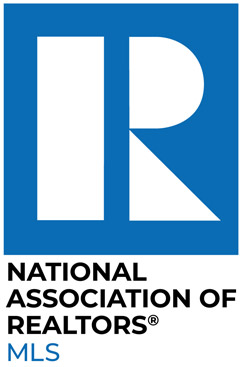You’ve finally found your dream home- congrats! The house checks all your boxes: it’s the right size and style, and to make things even better, your offer was accepted by the seller! The next step in your homebuying journey is the home inspection. A home inspection is an excellent way to reveal any issue with the house and avoid costly repairs down the line. Read on to learn more about home inspections!
Key Takeaways:
- A home inspection can reveal potentially life-threatening issues like faulty wiring that may cause a fire or mold that could cause structural damage.
- A home inspection contingency allows you to hire a professional to uncover major and minor issues with a home before buying it. It allows you to walk away without legal liability or losing your earnest deposit.
- Home inspections will look at the interior and exterior parts of the house, including but not limited to plumbing, roofing, surrounding trees and bushes, HVAC, and foundations.
What’s a Home Inspection Contingency Clause?
A home inspection contingency clause in your purchase contract with the seller provides that if the inspection uncovers significant defects you’re allowed to back out of the deal, free of penalty, within a specific timeframe (typically 7 days). The potential issues a home can have should be pretty severe to allow you to walk away from such a significant agreement.
How to Hire a Good Home Inspector
Enlisting a thorough, skilled home inspector is extremely paramount. They should be current on all certifications (for instance ASHI and NACHI) and up to date on all educational coursework and training. They also need to be fully insured (that protects you if they’re injured on your new property-to-be) and should have experience in the area you’re interested in buying in. That ensures that they’re well aware of any current issues with pests, soil, and even home builders in the region.
Essential Note: While every inspector does things differently, there’s a basic, standardized home inspection checklist they should follow- ensure your inspector can commit to following the checklist. Some inspectors can go above and beyond this and may report their findings in a different way.
What Does a Home Inspection Cover?
As mentioned above, inspectors vary in ability, experience, and thoroughness, but an excellent inspector will examine certain home components, including but not limited to:
Walls
The home inspector will check for missing or damaged sidings, cracks, and whether the soil is in excessively close contact with the bottom of the property, which may invite wood-destroying insects.
Foundation
If the foundation isn’t visible, and often it’s not, the inspector won’t be able to examine it directly. However, they’ll check for secondary evidence of foundation problems, such as cracks and settling.
Roof
The home inspector will check for areas where poor installation or roof damage could allow water to enter the house, such as missing, loose, or improperly secured shingles and damaged or cracked mastic around vents. They’ll also assess the condition of the gutters.
Plumbing Systems
The inspector will evaluate the showers and faucets, looking for visible leaks and testing the water pressure. They may recommend a secondary inspection if the pipes are too old to determine if they need to be replaced.
Electrical Systems
The inspector will determine the kind of wiring the house has, and test the outlets to ensure there are functional ground fault circuit interrupters installed in the kitchen, bathroom, garage, and outdoors. They’ll also check the electrical panel for any safety issues.
Heating, Ventilation, and Air Conditioning (HVAC)
The inspector will check the HVAC system to estimate the age of the air conditioner and furnace, determine if they’re functioning properly, and recommend repairs or maintenance.
Review the Home Inspection Report
Once the home inspector is done inspecting your home, they’ll create a full report of their findings. The report will typically have a section for every room or area of the property, and a note about anything that’s damaged, isn’t functional, and needs repairs. Usually, you’ll come across certain terms for any issues they spot, including:
- Material Defects: That includes any issue that may pose a potential safety risk or have a significant impact on the property’s value.
- Major Defect: A component or system that’s not working, not functional, and requires repair or replacement.
- Minor Defect: That entails small issues that can typically be fixed by the homeowner or a contractor.
- Cosmetic Defect: A superficial blemish or flaw that doesn’t affect the home’s functionality or safety.
Is It Necessary to Get Additional Inspections?
You can use your home inspection report to determine what other inspections could be necessary. If the inspector flags potential termite damage, you may want to get a termite inspection. And if he notes mold on your report, you should consider a mold inspection to evaluate the property. Some additional inspections you might want to consider include asbestos, radon, termite or wood-destroying insects (WDI), lead, sewer or drainage, structural, geological, and chimney inspections.
What’s Next After the Home Inspection?
Once you get the inspection results, it’s time to decide what to do with the findings. You’ll, of course, want to consider which issues pose a risk to you, your home, and your loved ones, which repairs you can handle on your own, which would cost an arm and leg to fix, and which ones would prevent you from moving in on time. Typically, as long as you’re within your contingency clause and period, you’ll have the following options:
- Continue as planned, with the same selling price and terms as you had agreed initially
- Ask the home seller to make certain repairs
- Renegotiate the selling price with the seller or ask for credits toward your closing costs to cover the repairs and replacement expenses
- Cancel the purchase contract outright and back out of the transaction
If you choose to have the home seller handle the repairs, you’ll need to ensure that they’re completed to your satisfaction. Schedule a walk-through of the house once the issues have been fixed so you can check in on the work and keep your closing on track.
Ready to Buy Your Next Home? Call Us!
A home inspection may cost you some time and money, but in the long run, it’s worth it. It can help you negotiate the price downwards or avoid buying a money pit. To learn more about home inspections or the overall homebuying process, http://remaxfloridateam.com/call our real estate experts today!













